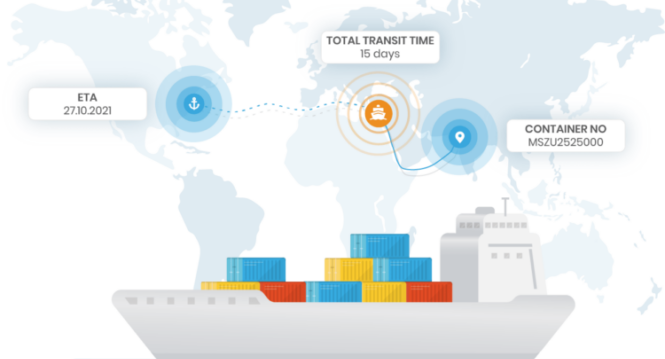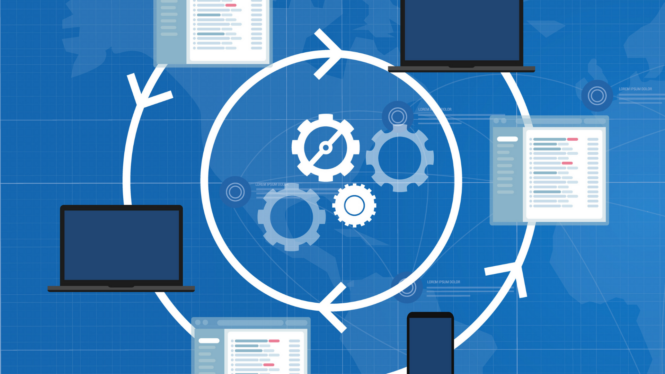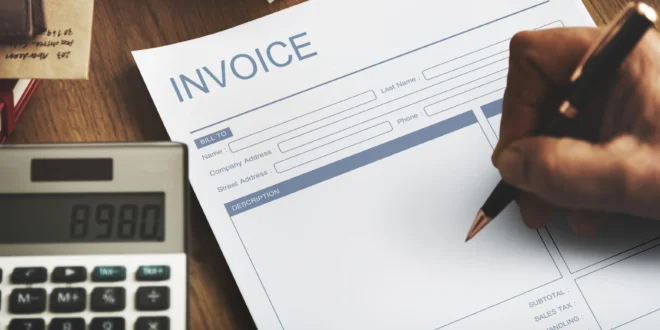Freight audit efficiency, the art of scrutinizing and optimizing freight bills, stands as an unsung hero in the logistics world. By ensuring invoices align with service agreements and highlighting discrepancies, businesses can secure their bottom lines and foster trust with partners.
Furthermore, timely and accurate invoicing is more than just administrative excellence—it’s a crucial component in nurturing business relationships, fostering trust, and ensuring smooth cash flow. Unresolved or inaccurate bills can create disputes, leading to strained ties and potential financial loss.
Automating Data Collection
The era of manual data entry, with its room for error and hours spent in data dredging, is becoming a thing of the past. By automating the data collection process, businesses can streamline their freight auditing.
Tools like EDI (Electronic Data Interchange) and cloud-based invoicing systems centralize data and reduce human error. From automatically fetching data from shipping partners to updating systems in real-time, these tools enhance both speed and accuracy. Given the sprawling nature of global logistics, such automation isn’t just a convenience—it’s a necessity.
Real-time Tracking and Visibility

Imagine being able to pinpoint the location of your shipment at any given moment or having predictive insights into potential delays. Real-time tracking systems don’t just add a layer of transparency—they significantly boost audit efficiency. With tools like RFID tags, GPS tracking, and IoT-enabled devices, stakeholders can access granular data about a shipment’s journey. This data-rich environment means any anomalies in billing or service discrepancies can be immediately identified and rectified.
Data Validation Techniques
Freight data is the bedrock upon which logistics decisions are made. As this data streams in, its validity is of utmost importance. Simple techniques, such as basic sanity checks, ensure that obvious errors are caught early. For instance, if a shipment’s recorded weight significantly deviates from known data, it’s flagged. More sophisticated techniques delve into complex contractual validations.
Employing methods like meticulous cross-referencing and sophisticated algorithmic checks, businesses stand a better chance against erroneous bills. Beyond merely reducing future administrative rectifications, this focus on validation bolsters trust with partners and solidifies the reputation of a company as being thorough and dependable.
Invoice Matching and Validation

The dynamic world of logistics has countless moving parts, making it all the more crucial to ensure invoices align perfectly with previously agreed-upon rates and terms. Advanced software solutions now enable businesses to systematically cross-reference these invoices against their contractual obligations. Digital tools such as Ct Global Freight Audit scan through intricate details, ensuring not a single discrepancy slips through.
When anomalies are detected, the system instantly flags them for human review, ensuring oversight is limited. This rigorous validation process not only acts as a safeguard against overpaying but also instills a deeper confidence in partners about a business’s integrity and precision.
Utilizing AI and Machine Learning

AI and machine learning aren’t just buzzwords—they’re powerful tools revolutionizing many industries, including logistics. These technologies hold the capability to sift through, analyze, and interpret vast datasets at speeds incomprehensible to humans. By recognizing patterns, predicting potential discrepancies, and even auto-validating freight bills using historical data, AI-driven solutions are fast becoming indispensable.
Notable industry leaders like ClearMetal and Llamasoft are trailblazing with AI-centric logistics solutions. By integrating such technology, businesses aren’t just streamlining their audit process but are securing a competitive edge in a tech-driven marketplace.
Automated Exception Handling
While technology has greatly advanced, no system can claim infallibility. Discrepancies, though reduced, will inevitably arise. The silver lining is the emergence of automated systems adept at handling these exceptions. By leveraging technology, rules can be defined and parameters set to auto-resolve many of these anomalies.
Instead of being a bottleneck, these discrepancies are swiftly addressed, ensuring the audit process remains fluid. Such automation not only boosts speed but ensures a level of consistency in decision-making that’s hard to achieve manually.
Customized Reporting
In a diverse business environment, stakeholders’ needs are as varied as their roles. While a CFO might be keen on overarching cost analyses, a logistics manager’s concern might pivot around detailed shipment data. Recognizing this diversity, modern auditing tools now come equipped with a powerful feature: customizable reporting.
This feature allows data to be tailored and presented in formats most relevant to the viewer, maximizing comprehension and relevance. By making data presentation flexible, businesses are not just optimizing communication but empowering decision-makers with the right insights.
Integration with TMS and ERP Systems

A holistic view of operations often leads to the best strategic decisions. One of the cornerstones of achieving this is system integration. By connecting freight audits with TMS (Transportation Management Systems) and ERP (Enterprise Resource Planning) systems, businesses ensure a seamless flow of data across all operational touchpoints.
Such interconnectedness not only eliminates the inefficiencies of data silos but drastically reduces manual data transfers, minimizing errors. This integrated approach, where all systems communicate and collaborate, paves the way for more accurate and efficient freight bill processing.
Audit Process Standardization
Each shipment may come with its unique set of challenges and characteristics, but that doesn’t mean the audit process should be equally varied. There’s immense value in standardizing audit workflows. By developing a consistent process, replete with templates, checklists, and preset rules, auditors are armed with a roadmap.
This structure ensures that irrespective of the shipment’s uniqueness, the audit remains uniform, reducing the likelihood of oversights and enhancing the overall efficiency of the process.
Continuous Improvement and Feedback Loops
Logistics is a dynamic field, with processes, technologies, and challenges constantly evolving. To stay relevant and efficient, freight audit processes must also adapt and evolve. By establishing feedback loops, businesses can extract valuable insights from each audit cycle and use them to refine subsequent ones.
This commitment to continuous improvement, complemented by regular training and timely software updates, ensures that the audit team is always equipped with the latest tools and knowledge, keeping them at the forefront of audit efficiency.
Cost Savings and ROI

At the heart of all these efficiency-enhancing measures lies a compelling financial motivation: significant cost savings. A streamlined and efficient freight auditing system can translate to substantial savings, often running into thousands or even millions annually for larger businesses. But the financial benefits aren’t limited to just direct bill reductions.
They extend to avoiding costly disputes, nurturing healthier business relationships, and optimizing resource utilization. As businesses strive for long-term success in the increasingly competitive logistics sector, prioritizing these efficiency hacks becomes more than a fiscal strategy—it’s a roadmap to sustained operational excellence.
See how you can make logistics easier on your business.
 Imagup General Magazine 2024
Imagup General Magazine 2024



